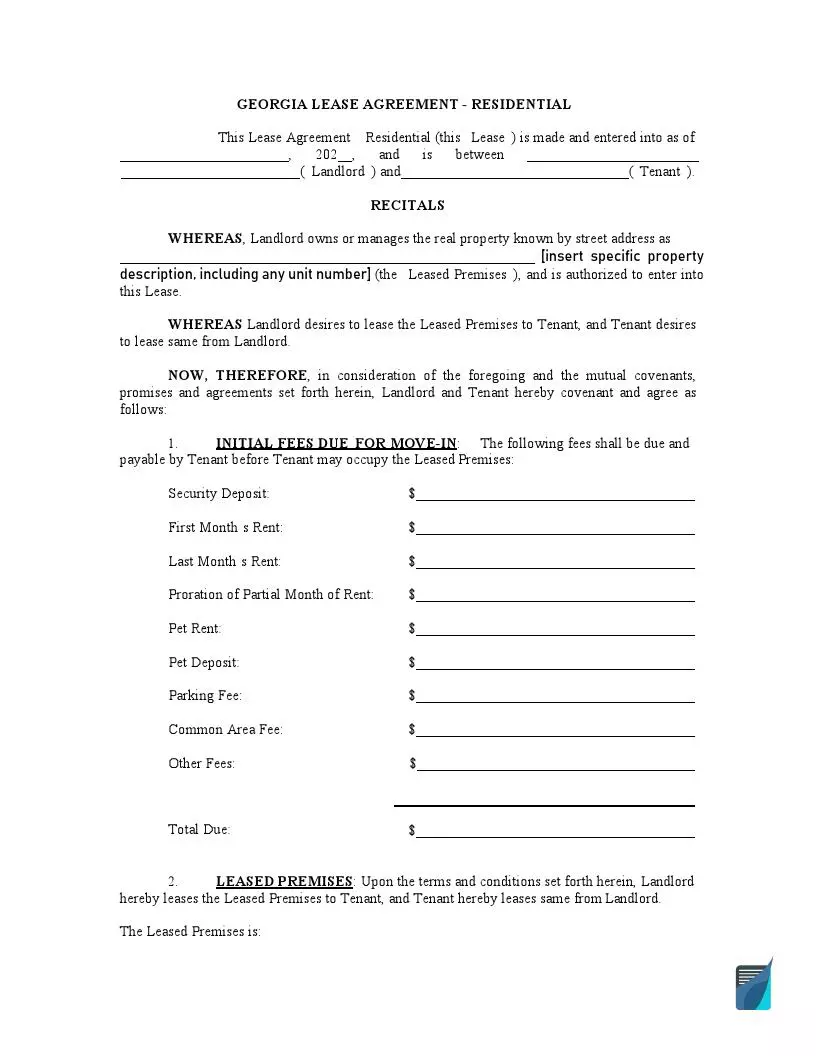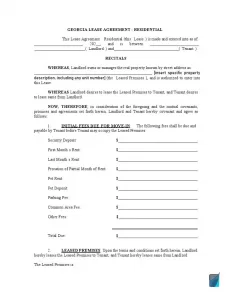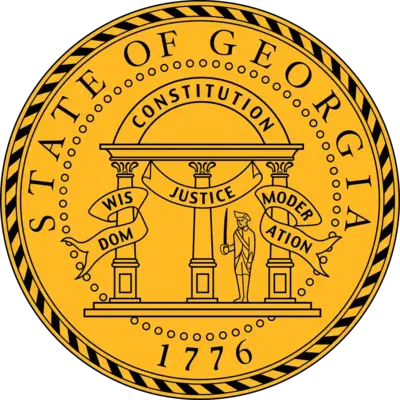Georgia Rental Lease Agreement Forms
Every US state introduces its documentation and specific requirements on lease deals. Georgia is not an exception. A rental agreement form is a statutory contract between a landlord and a rentee that helps maintain a fair attitude and protection towards both signatories.
Georgia rental agreements establish the terms of assigning the owner’s dwelling unit in consideration of the lessee’s rental payment. All required conditions should be authorized by the participants and satisfy the demands of Chapter 7, Title 44 of the Georgia Code. Violation of any of the qualifications of the statute may result in further court actions.
To maintain the validity of a lease agreement, both the lessor and the lessee should certify their understanding of all conditions listed on paper and append signatures to prove their intentions.
Georgia advances several templates of rental lease deals. You can generate any type of agreement using templates from our latest software.

Build Your Document
Answer a few simple questions to make your document in minutes
Save and Print
Save progress and finish on any device, download and print anytime
Sign and Use
Your valid, lawyer-approved document is ready
Types of Lease Agreements in Georgia
Below, you will find examples of Georgia rental deals.
- Month-to-Month Lease Contract. This rental arrangement doesn’t have a specific cancelation date. Following the laws, it is renewed monthly. However, the contract can be revoked through a termination notice.
- Standard Residential Lease Agreement. The document is one of the most sought-after rental papers. It defines a fixed period of rental leasing. Compared to month-to-month agreements, the lease participants cannot just terminate the standard residential lease contract until the defined period is over.
- Commercial Lease Agreement. These templates are valid while leasing commercial spaces like offices or warehouses. The paperwork provides solid protection to the agreeing parties because violating any terms would be considered a severe matter.
- Residential Lease with Option to Purchase. This type of rental arrangement is similar to a standard lease contract. The main difference lies in the option that a tenant can acquire the rented areas if the landlord is satisfied with the conditions of the purchase deal.
- Georgia Roommate Contract. This type of contract manipulates arrangements stated by the co-tenants sharing one rented location. The document serves to highlight each parties’ responsibilities and reduce ambiguous situations and disputes.
- Termination Notification. When a party decides to terminate the agreement, he or she must issue a termination letter covering the reasons for termination and the deadline.
- Lease for Residential Property. The template is offered by the Georgia Association of Realtors for properties within the state.
- Sublease Contract. Under the permission of the landlord, a tenant may sublease the property to another lessee or else subtenant. The period of sub-rent is determined by the main rentee.
Georgia Rental Lease Agreement Form Details
| Document Name | Georgia Rental Lease Agreement Form |
| Other Names | GA Rental Lease, Georgia Residential Lease Agreement |
| Relevant Laws | Georgia Code, Title 44, Chapter 7 |
| Security Deposit Amount | No limit |
| Security Deposit Return | One month from termination date |
| Avg. Time to Fill Out | 18 minutes |
| # of Fillable Fields | 119 |
| Available Formats | Adobe PDF |
Georgia Laws and Lease Requirements
To be able to draw up a rental lease contract, Georgia residents should accommodate all requirements of the state. You can find some inherent qualifications below.
Rental Application
A landlord obtains a legal power to collect inherent data about a potential renter, including their ability to maintain the rent payments, employment and rental history, and personal references.
Security Deposit
Chapter 7-11, Title 44 of the Georgia Code claims that the property owner can fix any desired price as a security deposit. This amount of money serves to protect the landlord from property damages not connected with natural wear. After the lessee vacates the property, the landlord has three days to complete an inventoried inspection list and withhold a particular amount from the deposit if needed.
Otherwise, the landlord has 30 days to return the deposit to the lessee if the property has been kept decent and well-conditioned.
Landlord’s Grant to Access
Compared to other states of the US, Georgia doesn’t expect a notification letter from the lessor to enter the property. However, we recommend using a free notification form providing a fair reason to enter. It will help avoid any aggressive and ambiguous situations between the parties.
Tenant Rights and Restrictions
Chapter 7-11, Title 44 of the Georgia Code defines the powers and responsibilities of tenants. Thus, it is forbidden to damage or destroy the respective territories, cut trees, or reconstruct the dwelling unit without the landlord’s permit.
Identification Disclosure
Following Georgia Code §44-7-3 (2018), the property owner should introduce in writing all authorized agents and individuals that can enter the rental property on behalf of the lessor. The document provides that the rentee is aware of and acknowledges the details.
Previous Tenants Disclosure
The landlord should provide data if there have been cases of infectious disease, deaths on the rental unit, or if the property has been compromised in some severe way. The potential tenant may request this information as it can affect the terms of the lease or the tenant’s decision to rent or not.
Lead Paint Disclosure
The landlord must provide this paperwork among the attachments if the dwelling building was constructed before 1978.
Flooding Disclosure
Under Georgia Code §44-7-20 (2018), the property owner must disclose if the dwelling or any part of the rental building was exposed to flooding at least thrice during the prior five-year period. The landlord should present the disclosure before the parties sign the lease rental agreement.


Need more Georgia documents? We offer free forms and simple customization experience to anybody who wishes for having fewer to none challenges when coping with paperwork.
Other Rental Lease Agreement Forms by State
